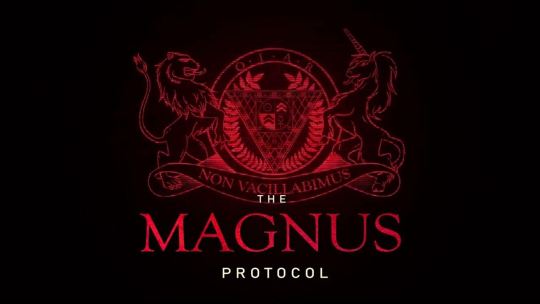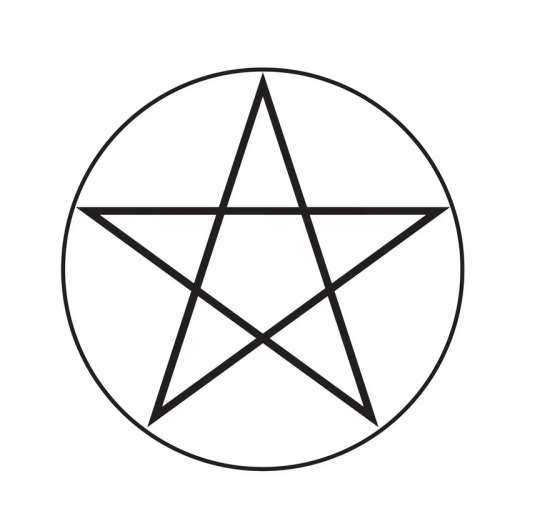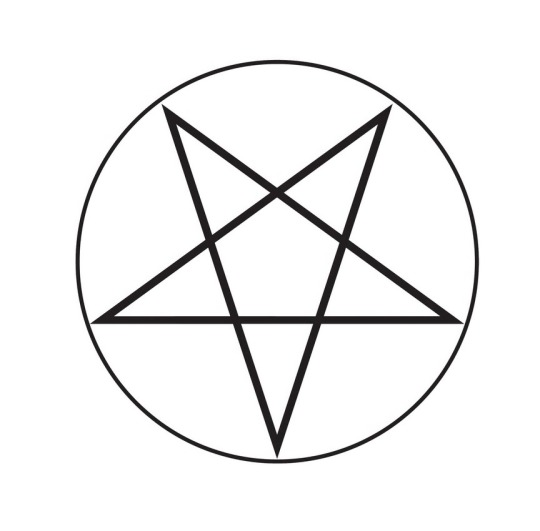#guess who's back on the wildly inaccurate theorizing bullshit babeyyy
Explore tagged Tumblr posts
Text
A Magnus (Protocol) By Any Other Name…
…will be just as horrifying.
Well, it’s time for me to dust off the corkboard, unravel some fresh red yarn, and cook up some new incredibly wrong but passionate theories. First one is bouncing off some key points:
1) The Magnus Protocol’s logo is composed of certain alchemic symbols, chiefly a version of the sign involved with creating the Philosopher’s Stone; the catalyst for riches and the Elixir of Life’s gift of immortality.

Especially tasty to consider, what with the first episode introducing us to poor Red Canary who discovered the ruins of the Magnus Institute were host to some strange symbols of its own inside.
2) A fellow by the name of Saint Albertus Magnus was kicking around in the 1200s and, like that famous French scribe Nicolas Flamel, he got a hefty posthumous reputation for having been a great alchemist on top of being a philosopher and scientist.
What does this add up to? First, I want to look at identity possibilities when it comes to who the Magnus(es) in question might be here.
Theory A: Jonah Magnus was part of a lineage with an itch to chase the more-than-earthly and, naturally, immortality. If not a direct descendant, then a sibling or cousin line. Can’t say Albertus would be jumping to congratulate the bastard for his ‘success story.’
Theory B: With apologies to the actual Albertus, maybe Jonah is that original alchemic Magnus. Or at least he wore the guy once upon a time and kept the surname. Maybe he fudged the ye olde records some centuries back. Death records, life records, whether or not old Al ran into some unsavory character with unpleasant gray eyes…
Theory C: Circles a bit back to A, in that Jonah wasn’t the only one in his family tree poking around supernatural and supernal forces. Assuming Jonah existed as himself at all in this place. Someone or something else might have been running this world’s Magnus Institute before it was roasted. While the current assumption is that the cast of characters we knew in The Magnus Archives might exist within TMP’s universe as themselves, we don’t have all the pieces yet.
Fun stuff!
But oh. Oh boy. I am chewing apart the implications of the main logo and the ‘protocol’ like an excited dog. Specifically, the possible implications of the Philosopher’s Stone symbol visible in the logo not being this…

…but this.

The sign is inverted. Which shouldn’t mean much, right? All the other little symbols chilling in there are right side up, what’s the big deal?
The same kind of deal that we see in the difference between a pentacle, associated with magic and pagan faiths in various forms:

And a pentagram, associated point blank with outright devilish and demonic dabbling:

Or, if you’re up on your Tarot, you know that there’s a world of difference between getting your card right-side up (delivering on the image’s classic meaning) versus flipping it to see the picture inverted (the opposite of the original intent).
So what does that mean for the TMP’s symbol, the same stamp which we might assume the Office of Incident, Assessment and Response has on their workplace? My guess: This is the insignia of a force or founder who put the ‘protocol’ in The Magnus Protocol. A foundation based on actively opposing what they took to be forces of a classically alchemic and/or infernal nature rather than the cosmic horrors we know the Fears as.
The Enemy is using these powers to evil ends. The Enemy is made of monsters. The Enemy includes Jonah Magnus, the spoiled offshoot of Albertus Magnus. Our sign is the opposition to his and others’ vicious quest.
Or suchlike.
In the style of Gertrude Robinson, the original person or persons behind the Protocol and our main characters’ Office appears to have hit upon a ‘fight fire with fire’ reaction to the Fears. We see how Alice, a veteran employee of the Office, displays a strong insistence on categorizing its statements very, very loosely, and actively not prying into deeper research in the way a place wholly possessed by the Eye would encourage. She’s seen people go strange upon following the lure of weirdness; but she knows from experience that the Office can be worked in jovially enough, sans side effects. The implication being that Colin is sprinting down that rabbit hole, poor dude.
If the OIAR is of the Eye, it is also against the Eye. Against all Fears, even as it absorbs statements of their actions. Feeding its patron while also cutting back the portions by way of not being too careful about the filing or the tasty background research. If the Eye is present at all in the Office, then it is settling for granola bars versus Jonah Magnus’ offered banquets.
Which all comes back to the question of:
If Jonah Magnus founded the Institute here, who is responsible for the OIAR?
My pet favorite is the ‘one who got away’ as far as Jonah’s classic 19th century days went—one Dr. Jonathan Fanshawe who got an eyeful of a victim’s blinking innards and broke ties with Magnus like they were pretzel sticks. We never do find out what became of him afterward.
His last written words to Jonah ran:
Nothing stood in the way of my retreat, and I dragged Albrecht’s body back as far as the coach. We left that awful place, and I have endeavored most acutely to forget the route. Before he was buried, I was able to secure permission to do an autopsy. I had some thought as to discovering the cause of his sudden, violent passing. Do I need to tell you what I found, Jonah? Do I need to detail what covered his organs, his bones, the inside of his skin? What clustered together in their dozens, and all turned as one to focus on me as I opened his chest, their pupils constricting in the light, with irises of every hue and color? Because whatever it was that did this to him, I know in my heart that it is your fault. I have had the body burned. Please do not write to me again. Your obedient servant, Doctor Jonathan Fanshawe.
You can feel the polite antique ice on that goodbye. Just as we can read here, and glean from his full letter, that the whole experience surrounding poor Albrecht is one he actively wishes he could forget. To not examine. And, of course, there’s the baited hook of Jonathan Sims’ next lines after reading the letter aloud:
Statement ends. (sigh) Disconcerting to find my namesake in a statement, especially one connected so directly to the Institute. I can only hope breaking faith with Jonah Magnus didn’t go too badly for him.
I can’t think of a better ironic hell for the good doctor than to find himself the abrupt focus of the Eye all over again. Especially when the meat of the letter-statement involves this scene:
“I had them rebound last year,” he said. “Damp can do terrible things to a book.” I told him I was certain that that was the case, but I must insist we talk about his health. Again he ignored me. Instead, he took the seat opposite me and started to tell me a story. And then another. And another. A stream of strange tales began to pour out of him, and I just sat there, transfixed, desperately wishing I had the strength of will to leave, but all I could do was listen. He told me of a seamstress, who laced her body with fine black thread, and when she pulled it all out in a single swift motion, her skin dropped away like a loose shift. He told me of a man so scared to die he spent a year weaving a rope blindfolded, so he would not know the length, and could not foresee the moment it would tighten around his neck when he finally threw himself into the void. He told me of a fire that burns so hot and fierce that to even know about it is enough to burn a man’s tongue from his head. He told me so many terrible things.
And at the end of it all, the only thing I could think to ask him was where he read them. My eyes darted to the books that surrounded us, but Albrecht laughed at this, and placed his hands across a spine that was simply labeled ‘A Warning.’ For a moment, he looked as though he were about to wrench it from its place and hurl it into the fire. But it passed. He turned back to me. “You do not understand,” he said to me in German. “I do not read the books. They read me.”
Isn’t that something? A crossing of paths with the Eye that wasn’t just inflicting its Stare upon him through a victim or an avatar, but effectively pinning Dr. Fanshawe in the role of the unhappily avid audience, however briefly. Forced to absorb a litany of horrors as another Jonathan would so many years later. Good foundation for someone who, upon discovering the insidious supernatural Powers That Be were not about to leave him alone, would try his best to turn that force into something to use against the monsters. A habit among Archivists who’ve had Jonah Magnus inflicted on them.
Assuming it is Fanshawe at the roots here, the act of designing a symbol centered on inverting the Philosopher’s Stone sigil makes sense. Cosmic and eldritch horror wasn’t really on the table for that era. But the demonic and the arcane were. As were, we can assume, history books to do with famous old Albertus Magnus and his possible connection to Jonah ‘Wants to Be an Immortal All-Powerful Specialboy’ Magnus. Whether it’s Dr. Fanshawe behind the OIAR’s inception or not, having it be somebody from Jonah Magnus’ early days works out—they would assume the bogeymen at work were merely hellish, nothing broader.
Plus, there’s just plain narrative convenience to consider. ‘19th century guy knows Magnus is up to shit with his Institute. Gets suspicious. Gets avatar’d against his will. Gets proactive about it. Named Jonathan, good for a bait-and-switch down the line.’
But, I could obviously be 1000% wrong, as per usual with ¾ of my Magnus-flavored theories. It could be someone or something entirely unrelated, though I’m keeping my fingers crossed for Fanshawe. Especially when I stop to think about how very fond the Fears are of avatars who play hard to get, forcing their essence and power on those who want it least.
The arachnophobic Annabelle Cane.
The endlessly exhausted Oliver Banks.
The goodwilled and betrayed Michael Shelley.
The empathetic sacrificial lamb of Jonathan Sims.
And perhaps, there at the start, Jonathan Fanshawe. Seeing and being Seen, balking at the Ceaseless Watcher’s work and the stories it wanted to share with him. Maybe, maybe.
We’ll just have to wait and See. 👁️
#guess who's back on the wildly inaccurate theorizing bullshit babeyyy#the magnus protocol#the magnus archives#jonah magnus#albertus magnus#jonathan fanshawe#theory
52 notes
·
View notes